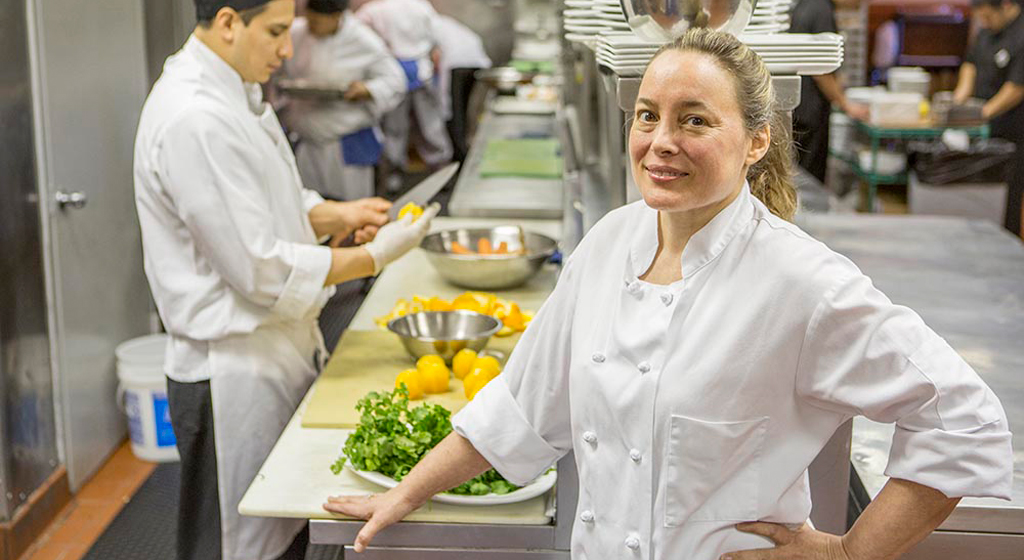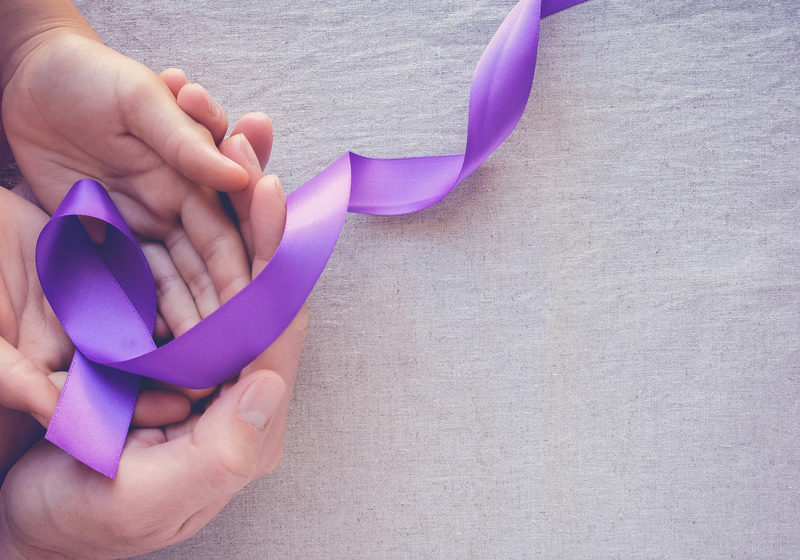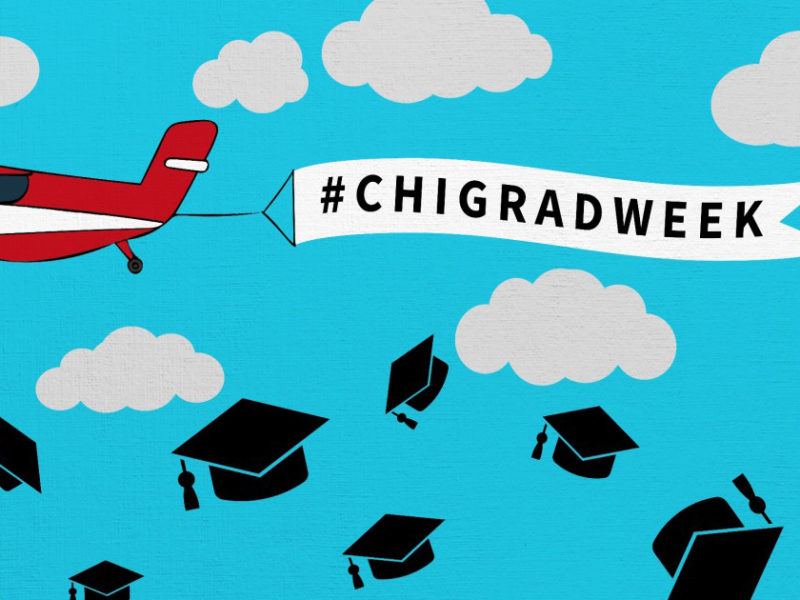
A Culinary Cure: Chef Sarah Stegner Tackles Coronavirus with a Helpline and Some Hope
It started with a gluttony of beans.
“I always tell people what to do with beans because I assume everyone bought beans. I have a ton of beans here and I haven’t even started cooking them.”
Sarah Stegner, the two-time James Beard Award-winning co-founder of Prairie Grass, was cleaning out her pantry. As uncertain news about the spread of coronavirus ran across social media, Stegner joined thousands of other Chicagoans in stocking up on provisions. Fervently. With gusto. Now she was out of storage space.
As it turns out, this was a common problem among her friends and family, who peppered her with calls about what they should do with pork chops or how best to use rutabaga. Sitting in a similar situation herself, all of the inquiry gave Stegner an idea.
And thus, her helpline was born.
Open from 2-4pm every day, the helpline, run by Stegner—an internationally renowned chef, mind you—gives people a chance to ask the culinary expert about anything, from how to put together the best avocado toast to suggestions for making use of the random assortments in a CSA box. People send her photos of vegetables seeking advice on how to use them. If she doesn’t know the answer to a caller’s question (the first two calls she fielded were about yeast and bread, something about which she knows very little), she reaches out to someone in her network of experienced chefs to get the answer. Callers will later follow up with pictures of their concoctions, basking in the pride of their professionally-advised meals.
“I really like the personal contact,” Stegner says. “That back and forth with people—that real contact and connection—is what I’m living on right now.”
The phone calls run the gamut of domestic culinary escapades. Sometimes they’re about specific advice for meals the caller already has in the works. Sometimes they’re about getting ideas for what to do with atypical ingredients. Sometimes Stegner doles out advice on how to use this time to prepare for the unforeseen developments in an already unpredictable pandemic. Stegner is deeply concerned about people and wants them to be prepared in the event that the person responsible for cooking in their house falls ill (To mitigate this, she recommends 1) creating a menu to specify what ingredients are meant for what purpose, as well as 2) making meals for up to 14 days that can be parceled out and kept in the freezer).
“People need to think aggressively about how to handle this,” Stegner cautions, though with an optimistic tone. “I’m not overly paranoid, but, though eventually we hope that this goes away, if it doesn’t, and you get sick, you need to take care of your family.”
It is, quite frankly, uncanny the extent to which this is a matter of morality for Stegner. At the core of all she is doing at the moment—running the helpline, coordinating delivery of meals from her restaurant to the hardest hit neighborhoods, connecting people with nutritional advice—is a commitment to the foundational place food occupies at the core of human health and happiness. And as restaurants across the state were forced to close down, the situation became a matter of accessibility, equity, and justice for Stegner.
“I kept thinking to myself, people don’t know how to cook, they need access to food,” Stegner recalls. “We have to stay open, even if we’re not able to make any money. This whole thing is crazy, but you know, people need access to food. I feel like, if we shut, it’s wrong.”
Beyond making herself available to literally anyone—just call (847) 920-8437 between 2-4pm any day—Stegner’s restaurant has rapidly developed a not so simple infrastructure for delivery. This means manning phones all day to collect and organize orders (which task has been taken up by her husband, who manages calls from 9:30am-4pm), procuring resources to package food for delivery, and bringing this food right to people’s doorstep (which her husband does, loading dozens of orders into the family car).
For Stegner, that’s what this is all about: the food. The way she looks at it, this moment underscores how deeply people are bound together by food. Going to the grocery store is about the only thing Chicagoans can leave their homes to do. Eating together continues to be one of the few elements of normalcy in an otherwise surreal new normal. And given the circumstances, eating well is also one of the most important steps people can take to stay healthy as they confront this pandemic head on.
“It’s about nourishing people and making sure that they are actually eating good, healthy, fresh food,” Stegner says. “I want to do what I can to keep people having the ability to have nutritious meals.”
If you’re looking for advice on anything cooking related, you can reach Stegner every day from 2-4pm at (847) 920-8437.




